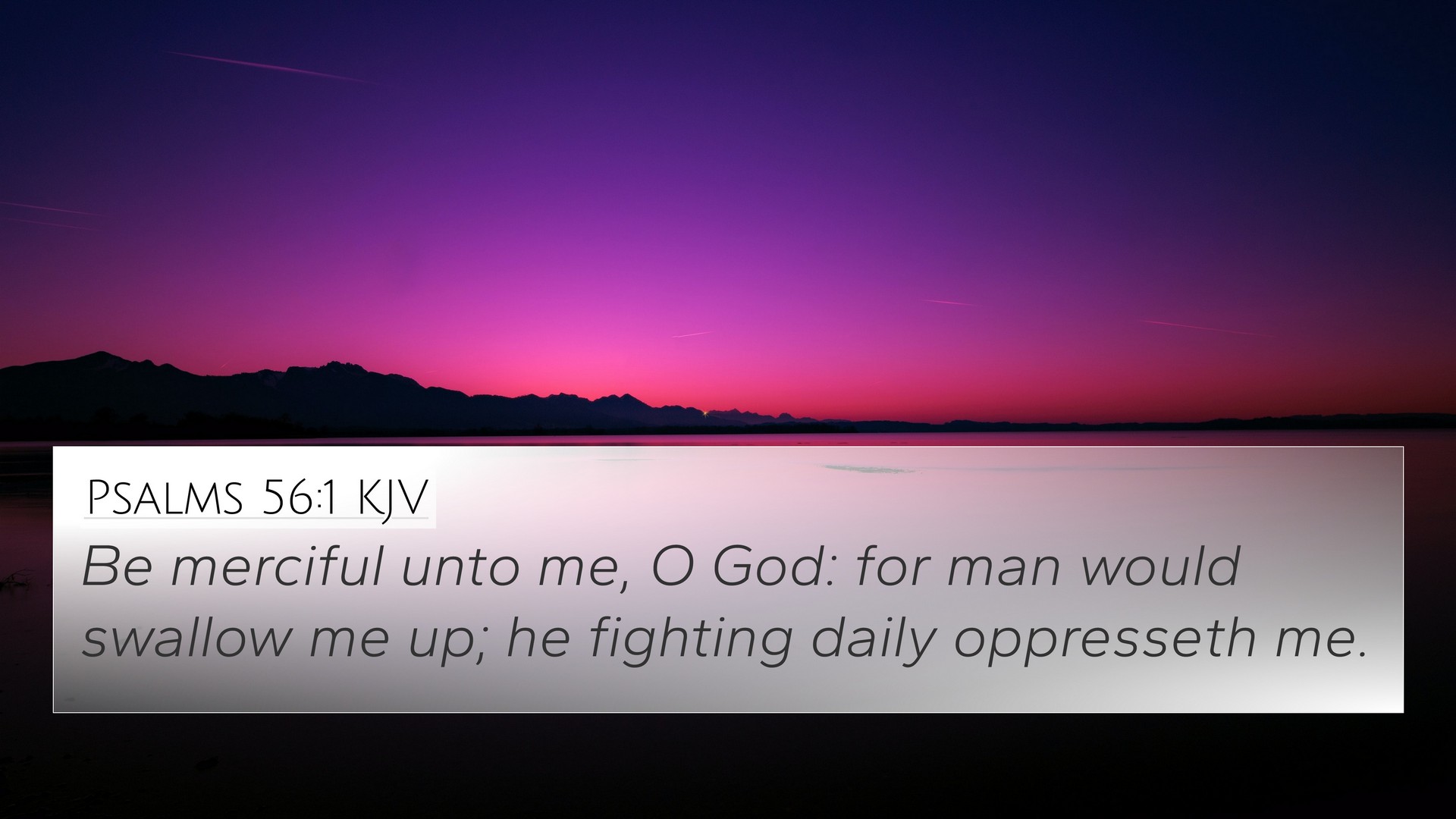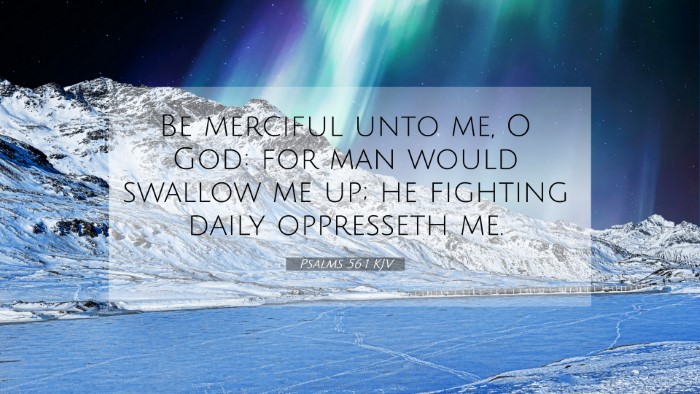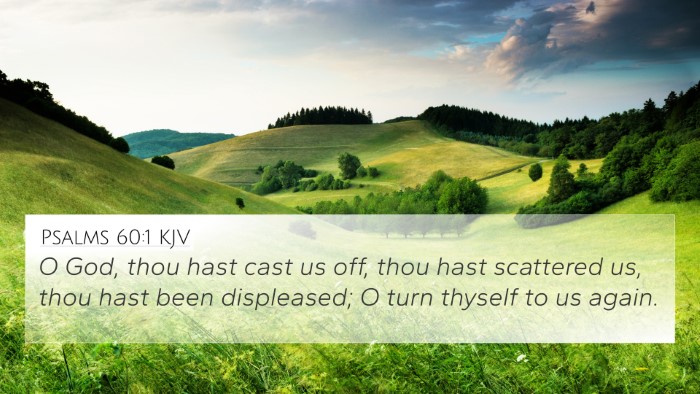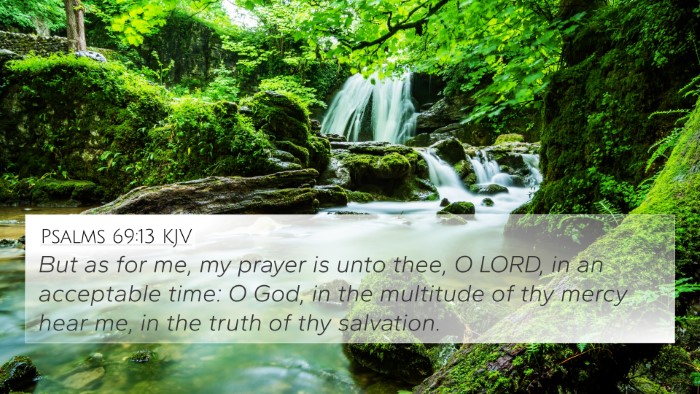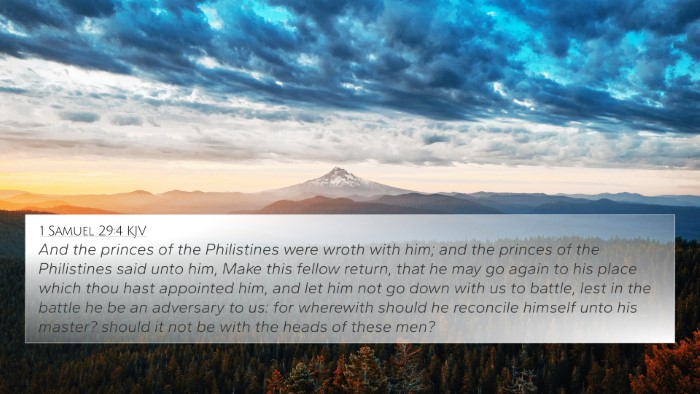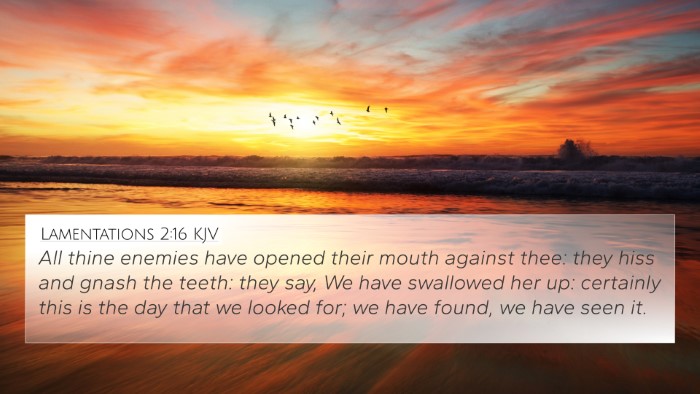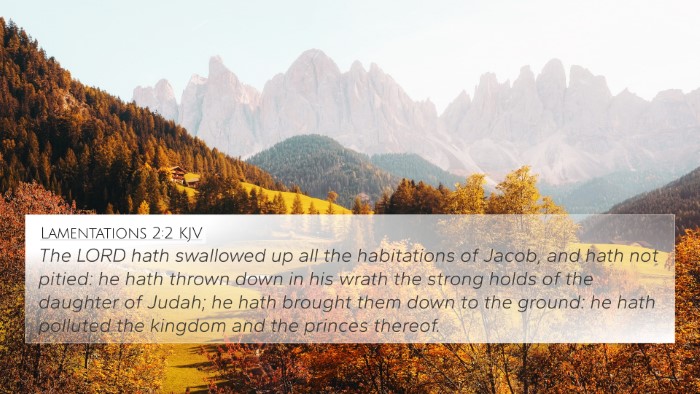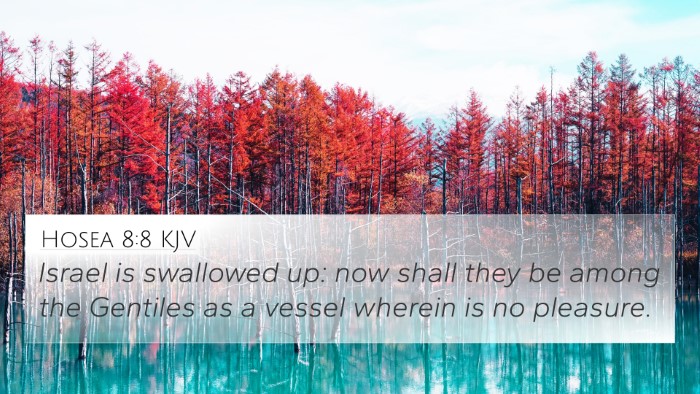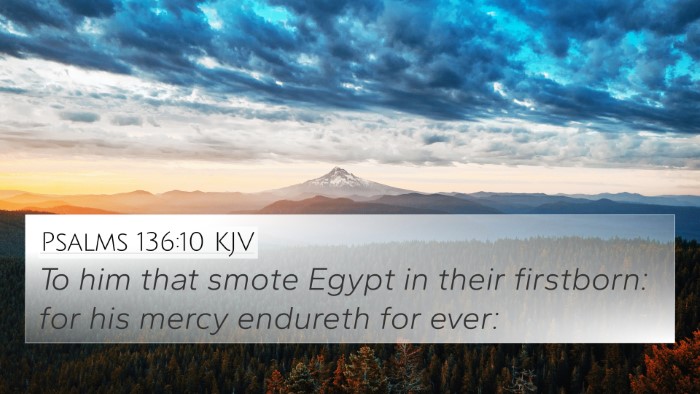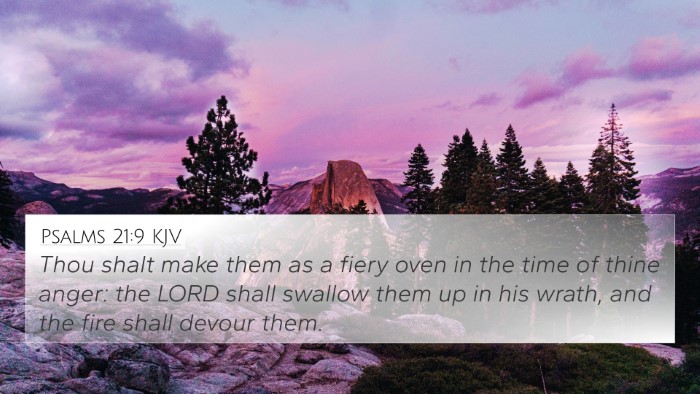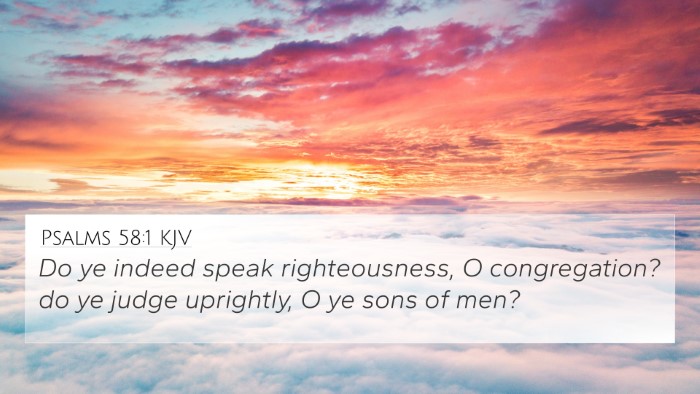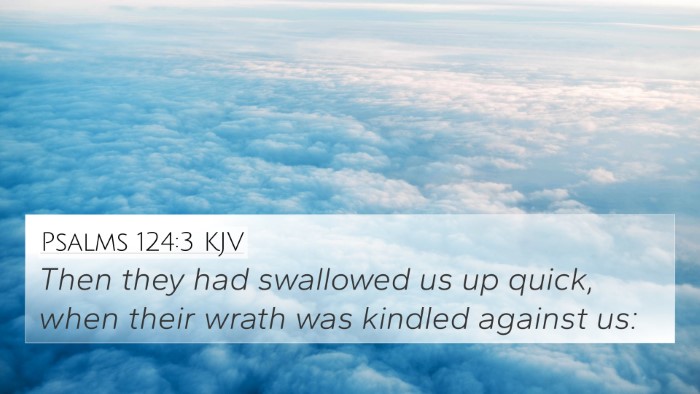Understanding Psalms 56:1
Psalms 56:1 states: "Be merciful unto me, O God: for man would swallow me up; he fighting daily oppresseth me."
This verse is a profound expression of David's plea for divine mercy in the face of overwhelming adversity. To grasp its full meaning, we can turn to several public domain commentaries and cross-reference related scriptures.
Summary of Key Themes
- Desperation for Divine Help: David cries out to God for mercy, indicating a condition of vulnerability and distress.
- Human Oppression: The phrase "man would swallow me up" reflects the perilous situation David finds himself in due to human enemies, portraying a deep sense of fear.
- Daily Struggles: The recognition that the fighting against him is ongoing emphasizes the relentless nature of his troubles.
Commentary Insights
Matthew Henry's Commentary
Matthew Henry illuminates this verse by emphasizing the nature of David’s plea. He interprets the request for mercy as an acknowledgment of God’s compassion and ability to deliver him from his enemies. Henry highlights the vulnerability reflected in David's words, indicating that in distress, seeking God’s mercy is essential.
Albert Barnes' Notes
Albert Barnes further explains that the "man" referred to represents all those who oppose David, illustrating both physical and spiritual attacks. Barnes notes that David’s reliance on God is a demonstration of faith—a belief that even amidst human aggression, divine help will prevail.
Adam Clarke's Commentary
Adam Clarke expounds on the emotional state of David, suggesting that the use of the word "daily" not only illustrates the frequency of his enemies' attacks but also points to a persistent feeling of anxiety. Clarke stresses that the depiction of God as a refuge is crucial in interpreting the broader narrative of Psalm 56.
Cross-References to Psalms 56:1
For a deeper understanding, consider these Bible verses that relate to Psalms 56:1:
- Psalms 34:17: "The righteous cry, and the LORD heareth, and delivereth them out of all their troubles."
- Psalms 55:1-2: "Give ear to my prayer, O God; and hide not thyself from my supplication. Attend unto me, and hear me: I mourn in my complaint, and make a noise."
- Psalms 18:6: "In my distress I called upon the LORD, and cried unto my God: he heard my voice out of his temple, and my cry came before him, even into his ears."
- Psalms 142:6: "Attend unto my cry; for I am brought very low: deliver me from my persecutors; for they are stronger than I."
- Isaiah 41:10: "Fear thou not; for I am with thee: be not dismayed; for I am thy God: I will strengthen thee; yea, I will help thee; yea, I will uphold thee with the right hand of my righteousness."
- Romans 8:31: "What shall we then say to these things? If God be for us, who can be against us?"
- Matthew 11:28: "Come unto me, all ye that labour and are heavy laden, and I will give you rest."
Thematic Connections
When exploring thematic connections between Bible verses, it's noteworthy how the struggles expressed in Psalms 56:1 resonate across both the Old and New Testament. The themes of divine protection and the need for reliance on God are prevalent throughout scripture, encouraging believers to seek comfort in God's strength during trials.
Comparative Bible Verse Analysis
Cross-referencing between various Bible texts can enrich our understanding of Psalms 56:1. For example, connecting David's plea with the prophetic assurances in Isaiah highlights the consistency of God's promise to be a refuge for those in distress. Such comparisons illuminate not just individual verses, but broader Biblical themes, creating what can be described as an Inter-Biblical dialogue.
Tools for Bible Cross-Referencing
To effectively study and find connections between verses like Psalms 56:1, various resources are available:
- Bible concordance
- Bible cross-reference guides
- Cross-reference Bible study methods
- Comprehensive Bible cross-reference materials
Conclusion
In summary, Psalms 56:1 is a poignant invocation for mercy amidst personal attacks and relentless trials. By employing cross-referencing strategies and examining various interpretations, readers can gain a deeper appreciation for this verse and the reassurance it offers in the context of faith and divine protection.
